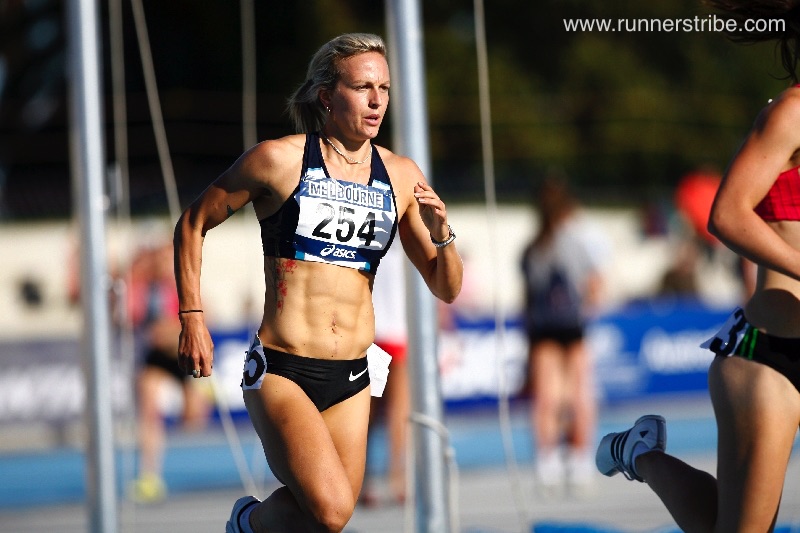FATIGUE: A HOLISTIC APPROACH.
A closer look at the role of nutrition
Written By Camilla Whishaw – Runner’s Tribe
This article follows on from the introductory piece published in Runner’s Tribe titled Fatigue: A Holistic Approach. This article explores in further depth nutritional considerations which may play a role in fatigue. In coming articles, other potential contributors to fatigue will be detailed.
Adequate nutrition, tailored to each individual, is paramount for energy production, performance and overall health and wellbeing. Challenges which may present themselves to athletes include insufficient energy intake; insufficient macro and micronutrient intakes; and poor control of blood glucose levels- all factors which will greatly influence fatigue levels.
EAT FOR YOUR INDIVIDUAL NEEDS
One of the key considerations in nutrition is that we are all individuals. As individuals, our overall nutritional requirements and the foods that work best for us are unique to each and every one of us. As such, this article will not detail dietary specifics, as these need to be assessed on a case-by-case basis. Instead it will provide general principles and information which can be adapted to each individual. It is vital to recognise that just because one dietary approach worked brilliantly for you ten years ago, doesn’t necessarily mean that the same approach will help you to perform optimally now. Throughout different growth and life stages, our nutritional needs change. It is also important to remember that just because your greatest competitor follows a particular nutritional strategy, doesn’t mean that the same dietary plan will help you perform at your best. In fact, it could be a disaster for you!
ENERGY INTAKE
As a general rule, runners tend to have higher energy requirements than the majority of the population. In our fast-paced society, often overly obsessed with fad-diets and weight loss, it can be easy to default to simply not consuming enough energy. We can be unaware that we are inadvertently skipping meals and snacks whilst we are busy working, or be influenced by the food choices of those around us (which often may not be suitable to meet our own requirements). This can definitely set up an energy deficit, in turn leading to feeling tired, training and racing poorly, and not recovering properly. As runners, our needs are different from those of the general population, and if we are to perform at our best, we need to be putting proper fuel in the tank.
CONSISTENCY
We need to be consistent in our nutritional approach. There is little merit in taking a balanced approach one week, then eating haphazardly the next. A useful method to monitor your eating consistency and energy levels is to keep a diary for a couple of weeks: detailing the foods you ate, the time of your meals and snacks and your energy levels throughout the day and training sessions. This will help to highlight situations and times where you may fall short on meeting your energy needs and the effects this may have on your performance.
MACRONUTRIENTS
An important consideration in relation to nutrition and fatigue is daily intake of macronutrients. Whilst most athletes will do best (in terms of both performance and convenience) in following a high carbohydrate diet (with moderate intakes of fats and proteins), others will take preference to a high fat, low carbohydrate diet. Again, it is important to follow what works best for each individual- given your events, goals, training and lifestyle. What is vitally important though is not to get stuck borderline between two approaches: for example consuming too little carbohydrate to adequately replenish glycogen supplies, but too much carbohydrate to enter ketosis, thereby hovering between the use of two energy systems. This will adversely affect training performance and leave you feeling like trash.
MEAL COMPOSITION AND TIMING
The composition of our meals and snacks and the timing of them can have significant influences on both energy levels and recovery. If we are to follow a high carbohydrate diet, then it is important to ensure that for optimal fuelling, muscle repair, balance of blood sugar and insulin levels, hormonal manufacture and healthy physiological processes of the body that each meal and snack contains a nutritious source of carbohydrates, proteins and fats. Examples include: carbohydrate sources (think wholegrains, starchy vegetables, fruits, etc); Protein sources (lean meat/skinless chicken/fish/eggs/nuts/dairy/legumes, etc); Nutritious fat sources (nuts/seeds/coconut oil/olive oil, etc). Many of us will need to eat meals and snacks every 2-3 hours to meet our energy needs as well as maintain adequate blood glucose levels, thereby helping to prevent undue fatigue.
Post training, there is an optimal window of timing to replenish depleted glycogen stores. Consuming carbohydrates, combined with protein to facilitate cellular and muscle repair within 20 minutes of finishing exercise is optimal. For those with high energy requirements and/or who struggle to eat much after training, consider the use of sports drinks (especially in hot weather where electrolytes are readily lost); smoothies/milk shakes; and light snacks. In these instances, more refined and sugary carbohydrates may be preferable to fibre-filled and usually more ‘nutritious’ options, in their ability to be absorbed and utilised quickly to refuel, as well as being lighter to consume. Note that in the case of sports drinks, these are a source of carbohydrate only and do not contain protein (the exception to this are a couple of new specialised drinks).
ALCOHOL
Although considered a very ‘normal’ and acceptable part of our society, the overall negative effects of alcohol on performance and recovery cannot be ignored by those wishing to run at their best. Alcohol is known to promote inflammation (bad news for athletes, but especially if you are injured, or have any ‘niggles’); contribute to dehydration; interfere with sleep cycles (thus hampering recovery); deplete levels of essential nutrients such as magnesium and B group vitamins (athletes already have elevated needs for these nutrients even before alcohol is taken into consideration); and can influence poor nutritional choices. These effects of alcohol all contribute to fatigue. If you do choose to drink, do so sensibly. Consider the timing, frequency and quantity you drink; ensure to consume plenty of water between drinks; avoid drinking when injured; and choose drinks with known health benefits (for example sulphate free red wine).
CAFFEINE
In moderation, caffeine can have some great positive health benefits, and is commonly used as an ergogenic aid by many runners. In sensitive individuals, or when consumed in excess however, caffeine can certainly negatively effect energy levels through a variety of modes and have some undesirable health effects. If you are a regular tea, coffee or energy drink consumer and you are often fatigued, then ask yourself the following questions: Do you drink more than 2-3 standard coffees/cups of tea per day (remember that many coffees and takeaway coffees are much higher in caffeine than the standard cup of instant coffee at home)? Do you regularly consume caffeinated energy drinks? Do you have trouble falling asleep or staying asleep at night? Do you drink caffeinated beverages in the afternoon? Do you have coffee as a substitute for a nutritious breakfast or consume coffee when you are feeling fatigued? If you answered yes to any of these questions and suffer from abnormal fatigue, then it is important to address your caffeine intake. As with alcohol, excess caffeine can contribute to dehydration and deplete levels of essential vitamins and minerals in the body. Fatigue aside, several studies have shown that high caffeine intake may be associated with an increase risk of fractures and bone demineralisation, an important consideration if you have suffered or are at risk of suffering from stress fractures.
Caffeine is know to put the adrenal glands under further stress- so for someone suffering adrenal fatigue (this will be covered in later articles), giving up caffeine (or at a minimum, cutting caffeine intake right back) is an important consideration and necessary step in optimising adrenal function and thus energy levels.
FLUIDS
Dehydration (even marginal) is a known contributor to fatigue. Unless you are in the habit of consistently carrying a water bottle with you (and sipping on it!), or regularly consume glasses of water at your desk throughout the day, it is highly likely you are not optimally hydrated. Add to this the dehydrating effects of air conditioning and heating in office workplaces; caffeine consumption; and sweating at training and your need for water is even higher. Before taking any of these factors into account, the recommended minimal daily water requirement is about 2.2L for woman – 3L for men. Although foods such as fruits and vegetables can contribute to this, the overall amount obtained from them is quite small in proportion. If you are not meeting the above fluid intakes before even taking into account training, chances are you are in some state of dehydration. Get into the habit of regularly sipping water throughout the day. To determine your elevated fluid requirements from training there are a couple of methods you can employ. Urine colour is a handy gauge.It should be a clear to pale yellow colour: dark yellow urine indicates dehydration (although supplementation of some B group vitamins can cause your urine to be darker in colour than usual). Another easy method is to weigh yourself in minimal clothing before training, and then towelled down in minimal clothing after training. The difference in weight is fluid lost through sweat: 1kg of weight ‘lost’ is 1L of fluid lost. To replace this deficit and rehydrate optimally aim for 1.1-1.5L of fluid for every kg ‘lost’. This may be achieved by consuming a combination of water and sports/electrolyte drinks (where appropriate).
VITAMIN, MINERAL + ELECTROLYTE DEFICIENCES/INSUFFICIENCIES
As athletes undergoing regular, strenuous training and racing, our needs for many vitamins, minerals and electrolytes are elevated far beyond those of the ‘normal’ population. Compounding this factor, many commonly prescribed and over the counter medications can also deplete specific nutrient levels within the body. Common short-falls in athletes which contribute to fatigue through various physiological routes include: iron, zinc, magnesium, chromium, B-group vitamins, vitamin C, and potassium. With the majority of these nutrients, supplementation should only occur once your requirements have been professionally assessed- as some are harmful in excess and/or when not properly indicated. Many minerals also compete for absorption, and it is possible to induce a deficiency in one nutrient by supplementing with another. Furthermore, most commercially available, over-the counter supplements have poor bioavailability (meaning the body is unable to absorb and use them properly) as well as being in dosage amounts that are not optimal. To ensure you save time, money and protect your own health and get the desired results- the professional advice of a fully qualified naturopath, dietician or nutritionist is highly recommended.
In conclusion, there are many factors to consider when faced with ongoing or abnormal fatigue in the athlete. Nutrition is one of the key elements to assess and address when looking to promote optimal energy levels, performance and recovery.
Camilla Whishaw BHSc (Naturopathy)
Camilla Whishaw is a keen distance runner and is a fully qualified and accredited practicing naturopath. She has specific interests in immune health, chronic fatigue syndrome, male fertility, injury recover and naturopathy for athletes.
End
Main cover photo- 2016 NCAA DI Cross Country Championships © 2016 Randy Miyazaki
© 2016 TrackAndFieldPhoto.com All Rights Reserved





























